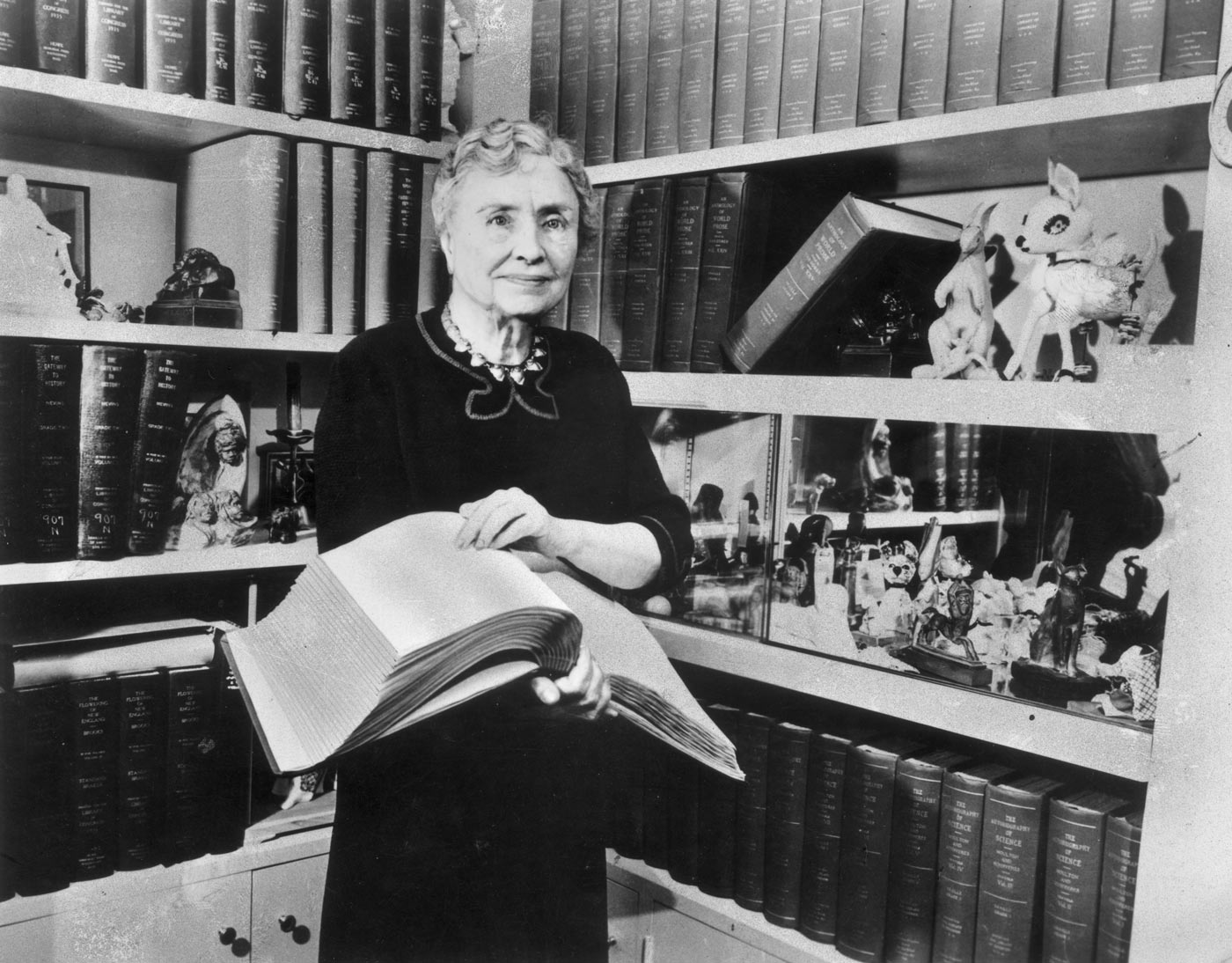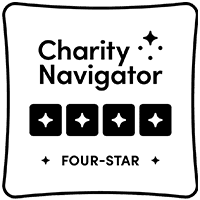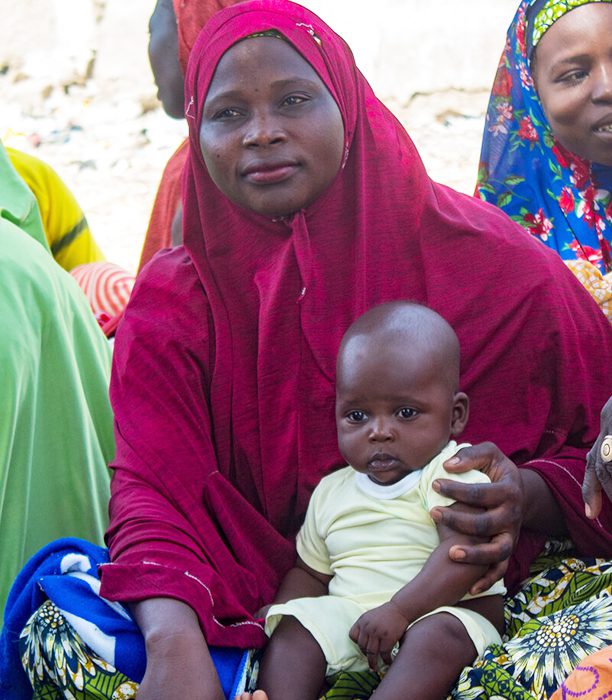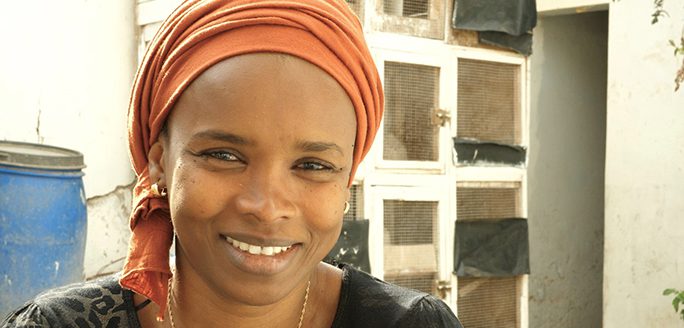
Women in Senegal are Raising Chickens to Raise their Standard of Living
A few years ago, we brought you the stories of two entrepreneurial Senegalese women who were growing food, raising chickens, diversifying their families’ diets, and increasing their income, with help from Helen Keller International’s CHANGE project.
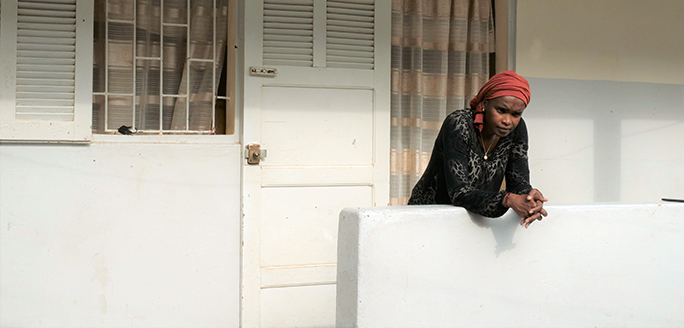
Soukeyna, a grandmother who lives with her children and grandchildren in Guédiawaye, a neighborhood on the outskirts of the capital, Dakar, started her home garden about four years ago. In addition to growing fruits, vegetables, and herbs, she also raises sheep and chickens.
Aissatou, meanwhile, is a young mother who lives in the same urban neighborhood as Soukeyna. Like Soukeyna, she received seeds, three hens, a rooster, a henhouse, training, and veterinary support from HKI’s program that allowed her to start a home garden and to raise chickens.
We caught up with both women recently. Here’s what they’ve been up to since we first introduced you to them.
Soukeyna
Soukeyna enrolled in the CHANGE program about five years ago, and after going through the training, she began to raise chickens and cultivate a micro-garden.
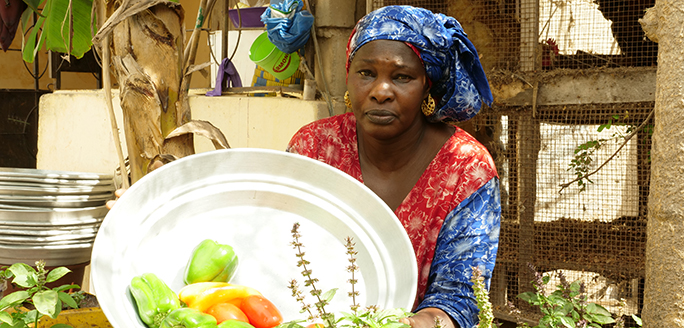
Since we last saw her, Soukeyna has greatly expanded her garden. She now grows peppers, tomatoes, cucumbers, basil, parsley, mint, moringa, and garlic. She also started growing and selling fruit, including cherries, bananas, and soursop, which is rich in Vitamin C.
“Before CHANGE,” she said, “I had to buy all these things at the market. But now I can use all my own vegetables in my food. I’m never lacking anything when I cook, and it helps me to save money.”
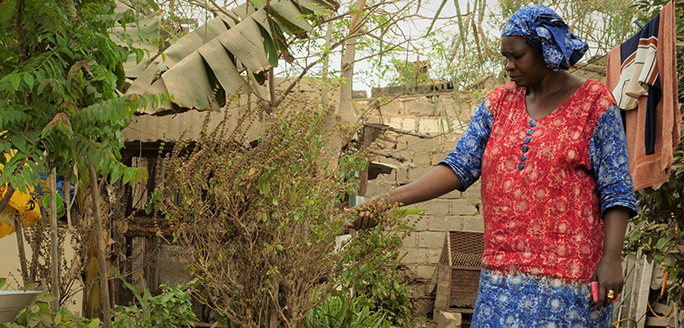
Soukeyna has three chickens at the moment. Her family eats the eggs they lay, and since they have more than they could possibly use, they sell the surplus.
“It gives me nothing but pleasure to get up in the morning and see the garden,” Soukeyna said. Her neighbors seem to agree. Women from the community often visit to admire the garden and ask how she grows the various crops. Soukeyna teaches them what she knows and gives the women cuttings so that they can start their own gardens.
Her dream for the future? “I’d love to have more space, so that I can have an even bigger vegetable garden and sell more of my produce.”
Aissatou
Aissatou has also expanded her operation.
When we first told her story in 2017, she had added a third level to the henhouse that HKI provided to her, as it did for all CHANGE participants. Now five years into this work, Aissatou has upgraded again, and she currently has a four-level henhouse in which she can raise as many as 40 chicks.
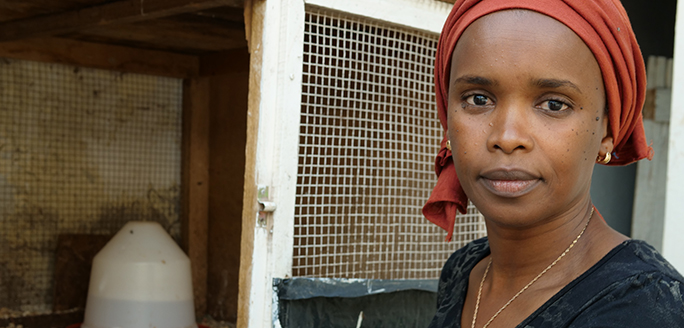
While the CHANGE project officially lasted three years and ended in 2016, Aissatou’s work continues. “We learned so much,” she said. “We had such good training. We were taught how to raise chickens, how to care for them, feed them, what kind of medicine to give them if they fell sick. What we learned then is still helping us today.”
For Aissatou, the primary benefit of the CHANGE project was the possibility of being able to feed her children well. Over the years, she has not only been able to provide them with more nutritious food, but also to pay their school fees with the income from selling the extra eggs and chickens, which in turn helps improve the nutrition of other children in the community.
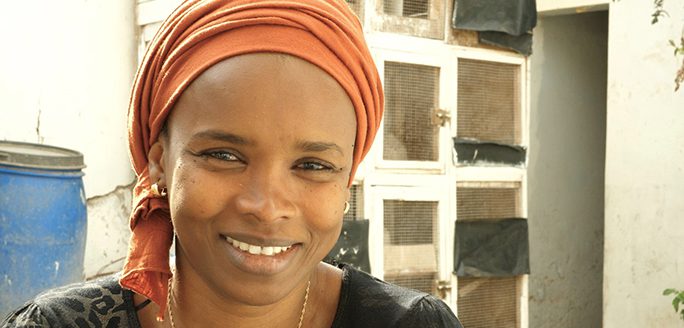
The CHANGE project has allowed Aissatou to feed her children more nutritious food.
And like Soukeyna, she is able to help the community through her mentorship. “I have lots of chickens, so people in the neighborhood are always coming by to ask about how I do it,” Aissatou said. “They always want information, advice, tips on what to do if the chickens are sick. It’s always been a source of pride for me to be a role model and the focal point for the project. I’m happy to do it, and I like to do it.”
In addition to learning how to raise chickens through CHANGE trainings, Aissatou also learned about nutrition for infants and young children, so much so that when she submitted her CV to the Institute of Social Pediatrics in Guédiawaye, they hired her to support treatment programs for acutely malnourished children. It’s yet another way for her to give back to her community.
As for Aissatou’s goals? “I like to learn, constantly. I’d like to continue to learn more, to have further training, to reinforce my capacity, and to move up.”
Aissatou and Soukeyna are just two of the approximately 1,300 CHANGE participants who were given simple yet powerful tools and techniques to improve their families’ nutrition and incomes, and who went on to do amazing things.
